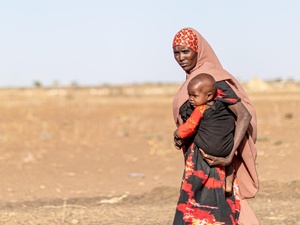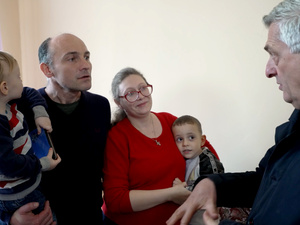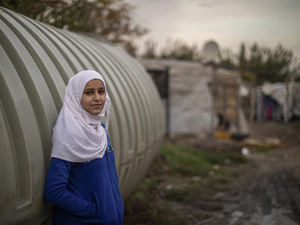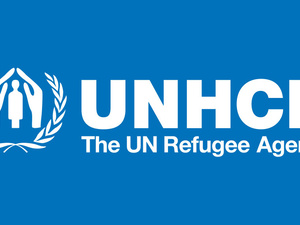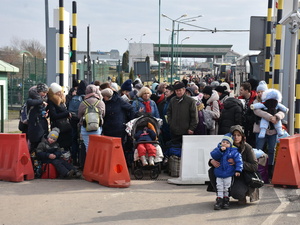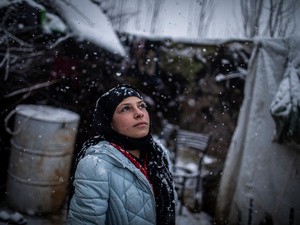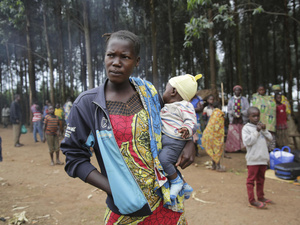UNHCR calls on states to expedite family reunification procedures for Afghan refugees
UNHCR calls on states to expedite family reunification procedures for Afghan refugees

A woman and child walk between the makeshift tents in Nawabad Farabi-ha camp for internally displaced people in Mazar-e Sharif in northern Afghanistan.
UNHCR, the UN Refugee Agency, is urging states to facilitate and expedite family reunification procedures for Afghans whose families are left behind in Afghanistan or who have been displaced across the region.
While recent political developments in Afghanistan have not led to large-scale cross-border displacement, many among pre-existing Afghan refugee and asylum seeker populations remain separated from their families owing to the inaccessibility of family reunification procedures.
Many are approaching UNHCR offices, desperately concerned for the safety and welfare of their family members who remain in Afghanistan or neighbouring countries.
To ensure the preservation of family unity and to help protect lives on account of the exceptionally challenging situation in the country, UNHCR is urging states to prioritize and simplify family reunification admission procedures.
The principle of family unity is protected under international law and in binding regional legal instruments. Domestic legislation in many countries also gives effect to this principle.
While many countries have specific legal frameworks that provide for refugee family reunification and offer specific safeguards and waivers, UNHCR is worried that many Afghan refugees could face considerable administrative barriers in realising this legal right.
Some of these barriers include prohibitive costs, lengthy waiting times and inflexible documentation requirements.
While a few countries have recently committed to fast-tracking, including through the adoption of humanitarian visa programmes, and prioritizing reunification procedures for Afghan families, UNHCR is urging states to ease, expand and expedite these arrangements.
UNHCR is also encouraging countries to apply liberal and humane criteria in identifying qualifying family members under these schemes, taking into account diverse family compositions and structures.
UNHCR urges that eligibility for family reunification procedures also include extended family members when a relationship of dependency is shown.
In the current context, many of those seeking to reunify with their loved ones in third countries will in any case qualify as refugees and be eligible for all refugee protection safeguards.
With many embassies and consulates currently closed in Afghanistan, UNHCR is also urging countries to take into account the constraints that refugees may face in being able to meet taxing administrative and documentation requirements for these admissions.
It proposes that a more pragmatic and flexible approach be taken, including through the use of innovative processing methods and remote interviews.
While distinct from refugee resettlement programs, family reunification schemes can complement humanitarian programs by facilitating safe and legal entry for refugees to other countries, helping mitigate the resort by refugees to perilous, irregular journeys, and helping refugees access protection and long-term solutions.
For more information on this topic, please contact:
- In Geneva, Shabia Mantoo, [email protected], + 41 79 337 7650
- In New York, Kathryn Mahoney, [email protected], +1 347 443 7646


